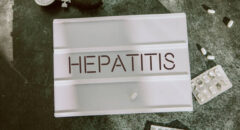
Much has changed since the introduction of more effective antiviral treatments for Hepatitis C (Hep C). Compared to the 1990s, where interferon was predominantly used (with woeful recovery rates and devastating side effects), the antiviral likes of Ribavirin and Daclatasvir are impressive in managing Hep C in some cases, curing it.
More interestingly, these antiviral medications (commonly administered orally) have proven to cure chronic and acute Hep C in 90% of patients. Furthermore, the majority of these patients were cured between 2-3 months after antiviral treatment.
Now, while these antiviral treatments are fantastic in curing Hep C, they flop when it comes to permanently protecting you from Hep C. As of the time of writing, the global scientific community is yet to deliver a dedicated vaccine for Hep C.
Therefore, it is no less of a nightmare getting re-infected with Hep C after managing to pull through an earlier episode. How then can you significantly reduce your chances of getting the virus again?
1. Be careful with your tattoos and piercings
Body arts are a robust part of contemporary culture. The charming tattoos and daring piercings; show you rock, right?
But you have to be highly cautious of tattoos and piercings if you have had Hep C. Why?
In tattoo operation, your skin gets punctured with needles, however tiny. Bleeding is not uncommon with such puncturing.
If someone with HCV was punctured recently with that very needle to be used on you, the Hep C transmission chances are high. This is considering the tendency of the infected blood to stay awhile on the needle.
Don't get me wrong, tattoo (or piercing) procedures are not totally forbidden, just that they require extra diligence on your part. Such diligence starts with ensuring you use a reputable tattoo artist, preferably licensed.
When the artist carries out the procedure, he or she should be furnished with protective gear like gloves. This would go a long way in reducing the possibility of blood being spread.
The salon (or environment) where the tattoo operation is being executed should maintain the highest levels of hygiene, leveraging new and sterile equipment only.
If you are keener on your health than being courteous, specially request that the artist removes the needle from the sterilized packet while you watch.
You can go as far as asking for unused containers and pigments too. No, it is not that disrespectful. It is your precious health we are talking about here, isn't it?
2. Injecting drugs make you terribly vulnerable to reinfection
Just like needles, syringes used in injecting drugs tend to retain tiny amounts of blood. Such blood can transmit the virus. Isn't it frightening that the Hep C virus can stay alive on syringes for as long as 63 days?
Aside from syringes, tourniquets, and needles, other channels of taking drugs like straws and pipes also come with their risk of Hep C reinfection. There have been several instances of people getting infected with Hep C from the blood on straws and pipes used in snorting drugs due to nosebleeds and cracked lips.
Never share such equipment with people. But more importantly, you need to get help to recover from drug abuse. While you may be scared of being judged and scolded, there are remarkable facilities out there eager to launch you on your recovery journey without condemning you.
3. Safe sex is the better option
If you are not certain of your partner's health (regarding his/her risk of Hep C), then leverage protection when engaging in sexual activities with such a partner.
While the chances of monogamously committed couples infecting themselves are slim, caution doesn't hurt, especially if you are with a new partner yet medically tested.
Likewise, engaging in sexual intimate activities with multiple partners also requires you to use protection.
Aside from these, other risk-fraught sexual practices to abstain from include sharing sex toys, unprotected anal sex, and unprotected fisting.
4. You would have to say goodbye to alcohol
Incidences are abundant of chronic Hep C resulting in fibrosis (scarred liver). Unfortunately, it is not always that the liver fully heals from fibrosis by the time your Hep C treatment ends.
Therefore, with your liver yet to fully recuperate, significant alcohol intake could reverse your gains, leading to further deterioration of the liver when the scarring worsens.
Therefore, it is recommended to abstain from alcohol even long after your Hep C treatment.
The same religious abstinence should be extended to administering herbs and OTC medications. Always ensure you get the approval of a medical practitioner before even taking any pill.








